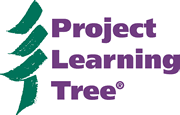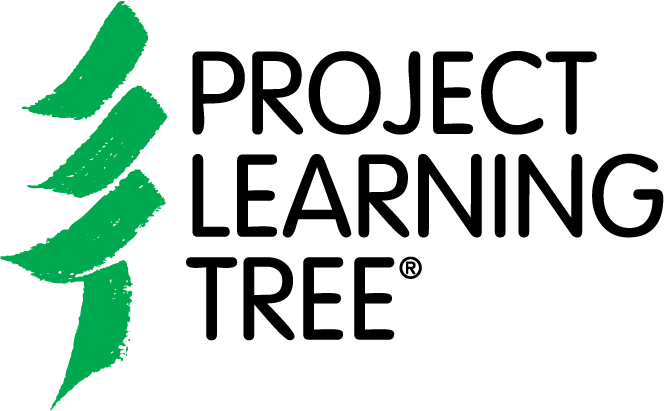February 10, 2025
It’s now been two years since we released Black Faces in Green Spaces: The Journeys of Black Professionals in Green Careers. And we’re beyond thrilled that thousands of students, young professionals, educators, counselors, and more have been impacted by the incredible stories shared within the book.
SFI and PLT have been working alongside Auburn University to foster the next generation of green leaders and environmental stewards. On this anniversary, we wanted to celebrate by sharing some stories – those of Auburn University leaders and Junior MANRRS students who have been inspired by the journeys of others.
Michelle Cole
Academic Administrator, Auburn University College of Forestry, Wildlife and Environment
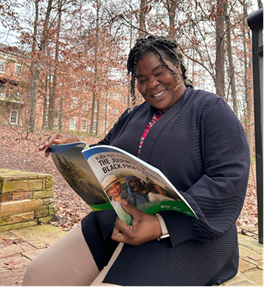 Growing up in a middle-class home, Michelle Cole dreamed of becoming an accountant. “I must be honest, a green career was not my first choice.” But thanks to her mentor, she ended up finding her green path.
Growing up in a middle-class home, Michelle Cole dreamed of becoming an accountant. “I must be honest, a green career was not my first choice.” But thanks to her mentor, she ended up finding her green path.
Ron Smith, who now works for Tuskegee University, used to work for the USDA Forest Service. He shared with Michelle that organizations like the Forest Service need accountants, too. He encouraged Michelle to attend a forestry camp in Florida. “I really liked the camp and all the things it had to offer; however, I still wanted to be an accountant.” It wasn’t until Ron convinced Michelle to take an introductory forestry course in college that everything changed.
“I got an A and never looked back. The next thing I knew, I had an internship in Sheffield, Pennsylvania, and boom! Green career, here I am! I landed one forestry job after the next and finally carved out where I was always supposed to be.”
In Michelle’s work, she has seen the direct impacts of The Journeys of Black Professionals in Green Careers. “The most inspiring thing about the guide for me was seeing all the people who looked like me, people that I knew who had careers in the green industry, and they were doing what they were passionate about. As I turned the pages, I said to myself, ‘I taught him in that class; I worked with her on this project.’ It brought me full circle in my career, and I love it. We are a small niche, but we are here for each other. I was in awe of the guide and was thankful that someone took the opportunity to feature natural resource professionals.”
Michelle is an urban forestry expert and academic administrator in the College of Forestry, Wildlife and Environment at Auburn University and advises all the forestry and natural resource management students, the Auburn community, and beyond through MANRRS (Minorities in Agriculture Natural Resources and Related Sciences). “I am most hopeful that we will continue to create the next generation of natural resources scientists. Working with MANRRS helps create those connections in professional development.”
Michelle’s advice to the next generation is this: “Take the leap of the unknown. Think outside the bark. Have an open mind about a green career path. My green career has taken me to some pretty amazing places, opportunities, and spaces that I thought were out of my reach. Trust and believe that there is an opportunity out there that has your name on it. It may not be what you thought you would be doing, but everything that you needed! Take that leap!”
Amari Parker and Hannah Padgett
High School Students

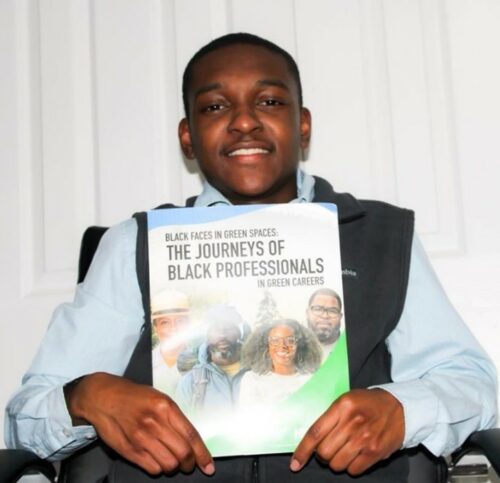 Just like Michelle’s mentor pointed out, a green job doesn’t mean you have to be working in the forest. Whether you want to pursue a career in communications, human resources, accounting, or law…your job can still be green! There are so many organizations within the forest and conservation sector needing your talents!
Just like Michelle’s mentor pointed out, a green job doesn’t mean you have to be working in the forest. Whether you want to pursue a career in communications, human resources, accounting, or law…your job can still be green! There are so many organizations within the forest and conservation sector needing your talents!
Amari Parker, Vice President of the Junior MANRRS program at Auburn University, is planning to pursue law school. “I’ve always wanted a career in the legal industry where I could assist others.”
Hannah Padgett, President of the Junior MANRRS program at Auburn, is following her dream of going into medicine, where she hopes to become a dermatologist and eventually own her own practice.
Through being a part of Junior MANRRS, both Amari and Hannah learned about green jobs. But after reading The Journeys of Black Professionals in Green Careers, both students discovered just how many more green career opportunities there are.
For Amari, “The most inspiring thing about the Journeys guide was being able to read and learn about the different people who look like me and have found happiness inside their green careers.” Hannah felt “The most inspiring thing to me was seeing all of the African Americans working in this field.”
Amari hopes that more people in his generation “will be open to learning more about green career paths and pursuing careers they are passionate about and love.”
And even if students don’t pursue a green career, they can still be inspired to take care of our planet. Hannah hopes her generation “will do all we can to make the earth a safer and better place.”
Janaki Alavalapati, Ph.D.
Emmett F. Thompson Endowed Dean of the College of Forestry, Wildlife and Environment at Auburn University
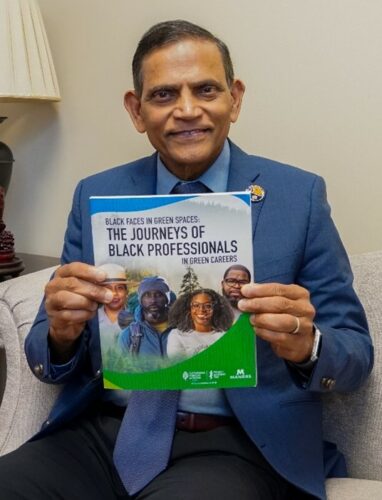
Dr. Janaki Alavalapati was born and raised in a rural community where he developed a passion for farming and natural resources. He went on to obtain master’s degrees in botany and forestry, getting his first job working for a state forest service agency in India. “After moving to North America, I continued my efforts in advancing higher education related to forestry, wildlife and the environment.”
Today, Dr. Alavalapati leads the world-class College of Forestry, Wildlife, and Environment at Auburn University in Alabama. He is helping develop the next generation of natural resources professionals. “The future of the environment lies in sustainable management and conservation of agricultural and forested landscapes. The youth, considered as our next generation, will significantly influence the ways we produce, consume, and distribute goods and services. These activities will have direct implications for conservation of natural resources.”
He is hopeful that more young adults will choose green careers. “Anyone who is interested in and passionate about natural environments, green career paths [such as] forestry, wildlife conservation, environment-society interface offer a great promise. The importance of these areas for social, economic, and environmental well-being at local, state, national, and global is growing leaps and bounds. Youth in these career paths would be in the front and center of analyzing complex issues and finding practical solutions.”
Resources like The Journeys of Black Professionals in Green Careers guide help increase the visibility of these types of careers, opening a whole new world of possibilities for students and young adults. “The Journeys guide provides youth with valuable information about green career pathways. More importantly, the featured stories in the guide inspire youth to embrace green jobs. Since governmental, non-governmental, and private organizations are increasingly seeking professionals from minority groups, I am very hopeful that the Journeys guide will stimulate the supply of minority professionals.”
![]() It’s up to us to have conversations with young people and expose them to various career paths. Find out what makes a person tick, what they’re passionate about, and what their strengths are.
It’s up to us to have conversations with young people and expose them to various career paths. Find out what makes a person tick, what they’re passionate about, and what their strengths are.
- Do you love writing? Communications and marketing are green jobs!
- Do you love numbers? Accounting and finance are green jobs!
- Do you love wildlife? Biologists are green jobs!
- Do you love teaching? Educators are green jobs!
- Are you fascinated by building designs? Architects are green jobs!
Just think of the endless opportunities. As Dr. Alavalapati said, there are government, non-government, and private organizations that need the talent and passion of this next generation!
Let’s get those conversations started. Explore green careers with your students using PLT’s suite of career education resources, including Black Faces in Green Spaces: The Journeys of Black Professionals in Green Careers, Green Jobs: Exploring Forest Careers Educator Guide, and Find Your Green Job: Youth Personality Quiz
